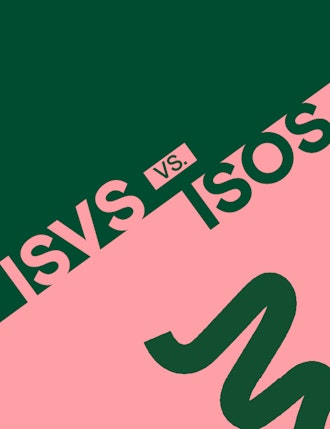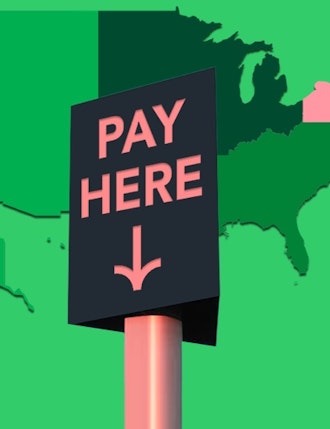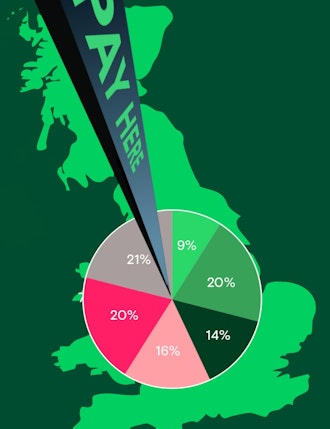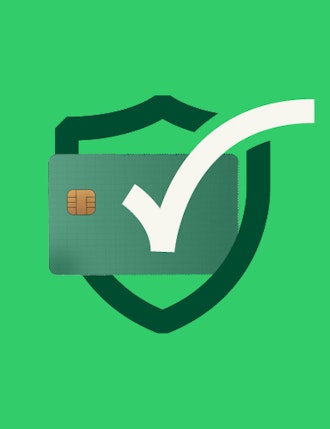Independent Software Vendors (ISVs) operate in a crowded market that moves fast and is brutally competitive. This means that to survive and flourish, ISVs need to offer merchants flexible options that work for them and their technology stack, and this is why ISVs are using payment orchestration platforms.
What is an ISV?
At the most basic level ISVs specialise in developing, selling, and providing support for software applications and solutions. Software applications can vary widely in terms of their functionality, purpose, and target audience.
As the name suggests, ISVs act independently, which means they are not tied to a specific hardware system or provider, and create software that can run on various operating systems and hardware.
In this post, we focus on ISVs that cater to merchants. Here the services are designed to help businesses manage their operations, streamline processes, and enhance customer experiences. These solutions are particularly useful for retailers, e-commerce businesses, restaurants and businesses selling physical goods online and offline. Popular examples of ISVs in the space are Toast, who specialise in payment technology for the restaurant and cafe sector and Lightspeed, who offer a variety of services for food outlets and retailers across a range of sectors.
ISVs depend on merchants buying, or more often licensing, their software. ISVs therefore need to ensure that the merchants using their services find their services easy to use, fast and secure or they risk seeing that merchant go to a competitor.
How can ISVs remain competitive?
For many merchants and small businesses, payment processing is no longer viewed as an independent process, and they aren’t prepared to have one supplier provide payment processing services and another sell them software to integrate that processing facility into their other systems. Integration is seen as a subset of the whole ecosystem provided by a business solution partner. It’s for this reason why 60% of small businesses opt for an ISV’s own payment processing option.
This means that in many cases, ISVs offering only integration to merchants aren’t offering enough, they need to bring more to the table and this is where a payment orchestration platform enters the equation.
Payment orchestration is the integration and management of the end-to-end payment process. It can include actions like authorising payments, routing transactions and handling settlements.
It’s the connecting layer between the entire ecosystem and a single unified software layer that brings everything together. It connects different payment service providers (PSPs), acquirers, banks and more. Merchants who have access to these services via ISVs can quickly plug in new providers of alternative payment methods and get access to the data they need to better understand their customers.
In short, a payment orchestration platform allows ISVs to offer many more services and opportunities to the merchants using their services. This of course means that they have a more comprehensive service to sell and a strong sales message to merchants that the ISV is doing the heavy lifting of processing payments, managing security and data and many other payment related activities, freeing the merchant to focus on other things. Not only is this an attractive sales message to potential customers but also allows ISVs to offer a more comprehensive package to customers, charge higher fees to those customers or upsell customers with bolt ons. An example could be enabling a merchant to add additional payment options to an ecommerce store in exchange for a higher monthly fee.
Payment gateway services
In order to ensure they’re offering merchants a painless, end-to-end payment experience many ISVs now offer merchants systems that allow them to integrate payment gateways either into online or brick and mortar stores. Payment gateways facilitate the movement of information between the store and the acquiring bank and have traditionally been another piece of the puzzle that merchants have needed to get in place in order to be able to take payments.
Integrating payment gateway services into their offering is another way that ISVs can add value to their offering.
Globalising rapidly
With many merchants looking to globalise their businesses rapidly, ISVs can again create value ads. By helping merchants quickly expand the payment options they accept, ISVs can ensure that if a new market favours a particular payment type or even a specific payment provider, this won’t be a challenge for the merchant to accept and process.
Data gathering and insight
Offering a variety of payment services to a wide variety of merchants means that ISVs will naturally generate large amounts of data and this data can be used to generate interesting insights that can be of huge benefit to the ISV.
First and foremost, they have the opportunity to mine this data to improve the efficiency of their software. By understanding how, where and when merchants are using different services, the ISVcan ensure that their software is working as efficiently as possible.
Secondly, they can better tailor their offering to those merchants, making sure the service they offer is as close as possible a fit for the merchant’s specific needs. ISVs should also be able to start to anticipate merchant needs and therefore be primed to make timely approaches with upsells or bolt ons.
Thirdly, the insights yielded by the data could become a valuable service for the merchants in itself. Because ISVs will typically have access to a wider data pool than an individual merchant, especially in the case of smaller merchant enterprises, then they will be able to glean better insights than a lone merchant ever could. By sharing data on a particular market or market segment, ISVs can help their merchants to make smart decisions.
Unlocking potential without the headache
A payment orchestration platform allows ISVs to unlock a world of possibilities, enabling them to offer a more comprehensive payment system to the merchants who are their customers, generating valuable insights from data and tapping them into the wider global payments ecosystem.
A payment orchestration platform also packages this for ISVs in one place so they can offer this to clients without having to integrate all of these varied services and systems themselves, and then manage the maintenance of that. Payment orchestration platforms allow ISVs to do more and stand out in a competitive field.
How can Aevi help ISVs?
Our payment orchestration platform digitises the entire payment ecosystem, including the in-person checkout flow. This enables our ISV partners to assume more control over their in-person payment process. Where this was often tied to the offering of their payment processing partners, we provide them with the freedom to route transactions dynamically to their partner of choice and to add and exchange processing partners in their global processing portfolio, either via full or semi-integration.
And with a better, more all-encompassing solution offered by ISVs, comes more flexibility and payment efficiency for their merchant customers.
Find out more about how Aevi serves ISVs.
Interested in reading more around this subject? Here are some useful articles…













